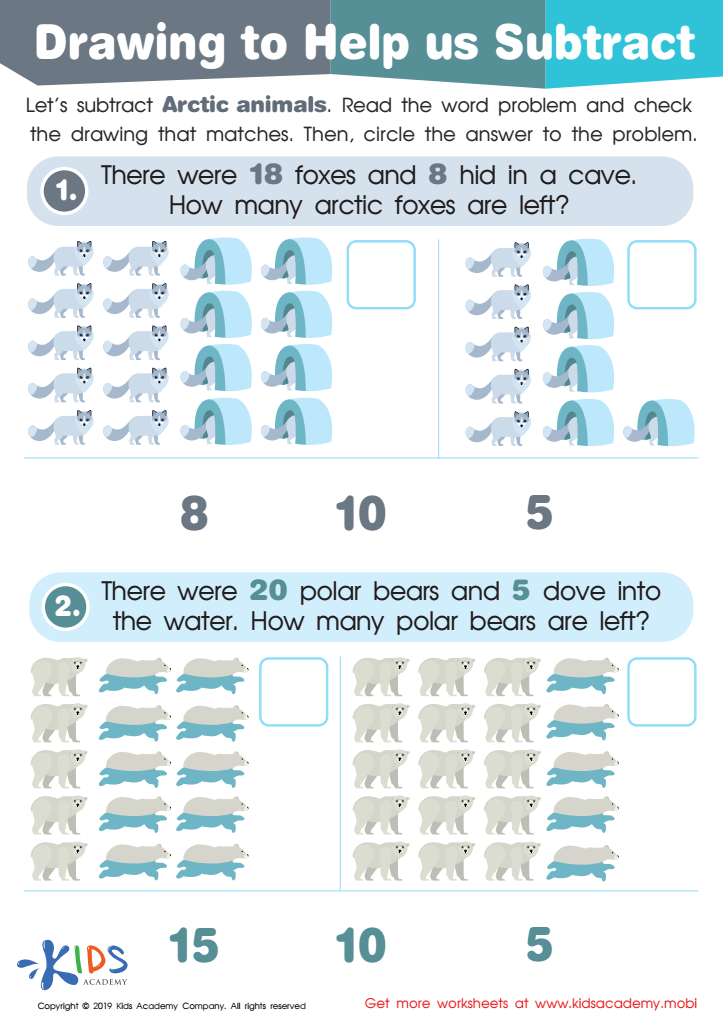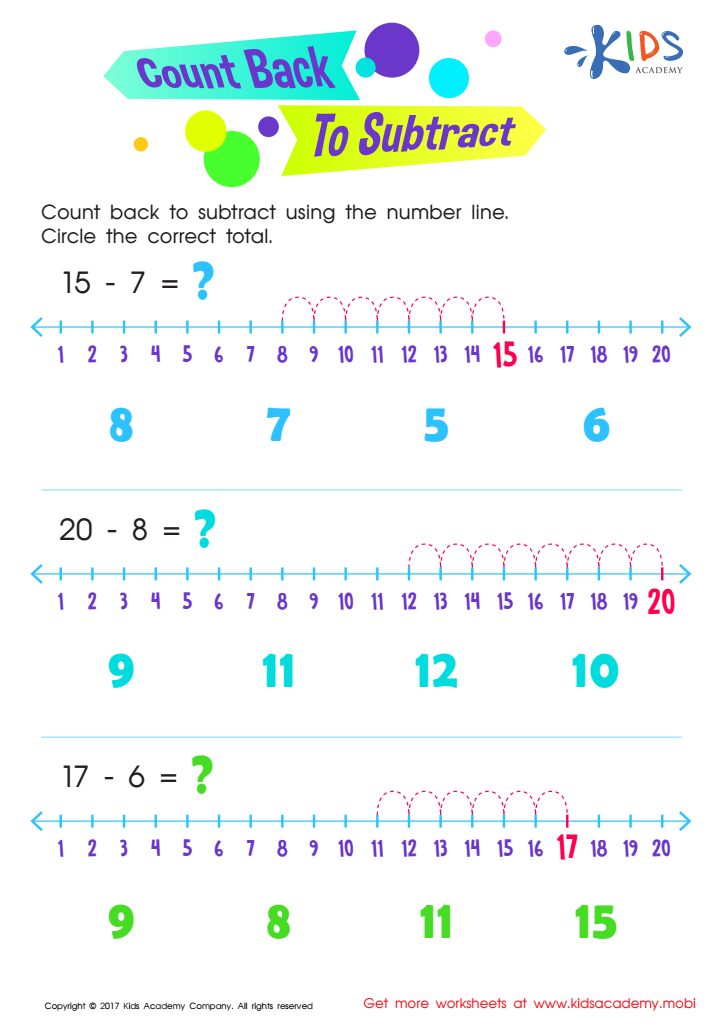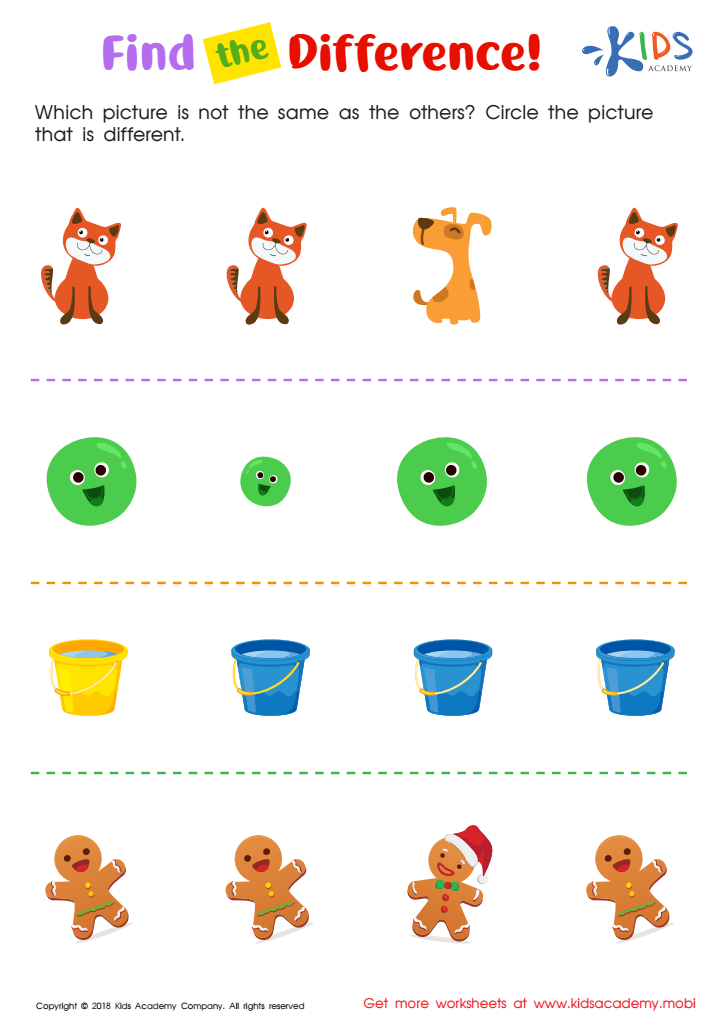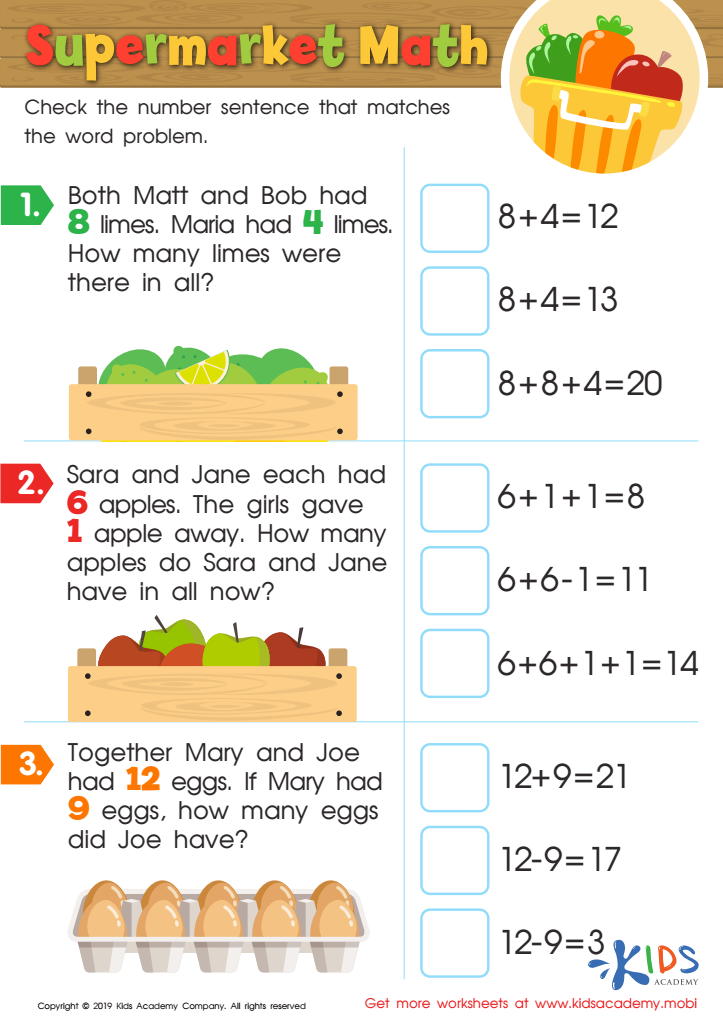Subtraction skills Normal Math Worksheets for 4-Year-Olds
4 filtered results
-
From - To
Nurture early math skills with our engaging Subtraction Skills Normal Math Worksheets for 4-Year-Olds. These teacher-approved printable activities are designed to introduce young learners to basic subtraction concepts in a fun and interactive way. Each worksheet features kid-friendly illustrations and simple exercises tailored to their developmental level. These resources help build critical thinking and problem-solving abilities while making learning enjoyable. Parents and teachers can confidently use these worksheets to support children’s educational journey and enhance their numerical proficiency. Explore our selection to give your preschooler a strong foundation in subtraction!


Drawing to Help Us Subtract Worksheet


Count Back to Subtract Substraction Worksheet


Find the Difference Worksheet


Supermarket Math Worksheet
Subtraction skills form a fundamental part of early childhood education and are crucial for the cognitive development of four-year-olds. At this developmental stage, children are naturally curious about their environment and eager to learn. Introducing subtraction helps nurture their emerging numerical sense and lays the groundwork for more complex mathematical concepts later on.
Parents and teachers should care about these skills because they enhance problem-solving abilities and logical thinking. Subtraction, which involves understanding 'taking away,' helps children grasp the concept of losing quantity or reduction. This not only supports their academic journey in math but also applies to real-life situations, such as distributing snacks or understanding the reduction of time for play.
Moreover, mastering subtraction fosters a child's confidence in handling numbers, encouraging a positive attitude towards math. It builds a crucial foundation that makes future learning experiences smoother and more enjoyable. By engaging in fun, simple subtraction games and activities, parents and teachers can foster mathematical interest and competence, equipping children with skills that have been shown to correlate with better academic performance throughout their schooling.
Overall, caring about and supporting subtraction skills in young children paves the way for their holistic growth, both in and out of the classroom.
 Assign to My Students
Assign to My Students

















